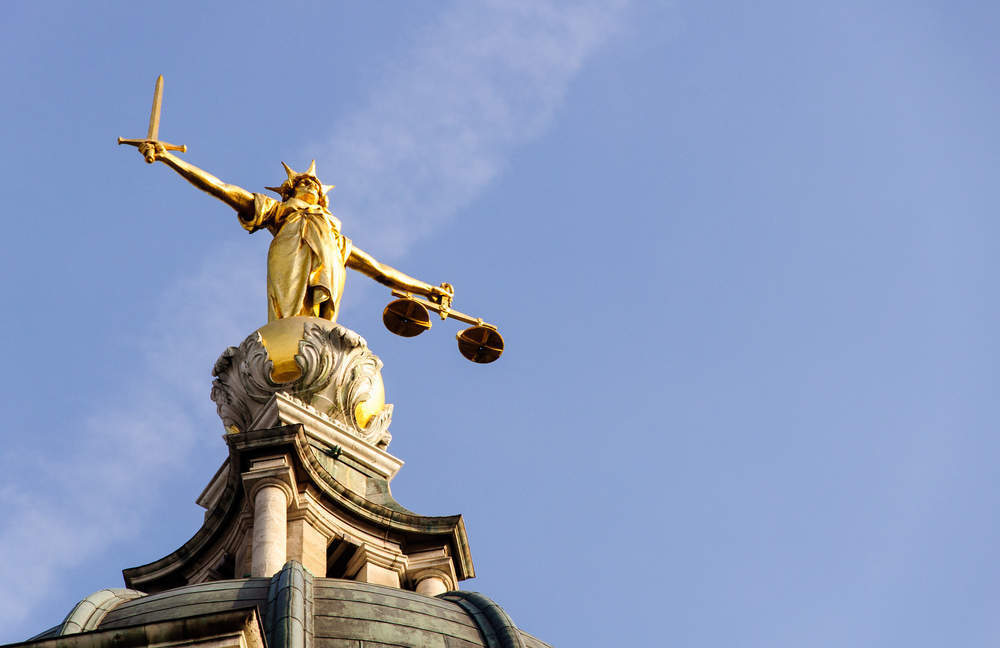
The British student Lauri Love has found out he will not be extradited to the US today, following a UK High Court ruling.
Two judges, Lord chief justice Lord Burnett and Mr Justice Ouseley heard arguments in November that an extradition for Love would not be in the interests of justice.
In particular, the 32-year old suffers from Asperges syndrome, depressive illness and severe eczema. His lawyers said there was a high-risk Love would attempt to kill himself if extradited.
Lord Burnett said the extradition should not take place and that the order must be quashed.
Now, Love is set to face trial in the UK and imprisonment in the UK if found guilty.
What was said:
The judges said:
How well do you really know your competitors?
Access the most comprehensive Company Profiles on the market, powered by GlobalData. Save hours of research. Gain competitive edge.

Thank you!
Your download email will arrive shortly
Not ready to buy yet? Download a free sample
We are confident about the unique quality of our Company Profiles. However, we want you to make the most beneficial decision for your business, so we offer a free sample that you can download by submitting the below form
By GlobalData“We come to the conclusion that Mr Love’s extradition would be oppressive by reason of his physical and mental condition.
“We accept that the evidence shows that the fact of extradition would bring on severe depression and that Mr Love would probably be determined to commit suicide, here or in America.”
Why it matters:
Campaign groups and MPs have been trying to prevent the extradition of Love for the past two years.
Myself and 70+ MPs from across the House are deeply concerned for Lauri's life if his extradition order goes ahead. We strongly urge that the Attorney General make representations to the US to ensure that Lauri's extradition is halted and he is instead tried at home #TrialatHome
— Barry Sheerman (@BarrySheerman) November 20, 2017
The Courage Foundation, which runs the Love’s defense fund, said the case raises concerns about “Britain’s willingness to extradite vulnerable citizens to face life-long jail terms in conditions far worse than would be countenanced domestically.”
Following today’s announcement, Courage’s case direction, Naomi Colvin, said:
“I am absolutely thrilled for Lauri, his family, friends, his legal team and all the supporters who have worked so hard to bring us to this point. As we demonstrated at appeal, Lauri was only ever in this position because he had been marked out for unfair, discriminatory and vindictive treatment.
“With any luck, today’s ruling will mean that prosecuting authorities finally start respecting the clear will of the British public: we do not extradite our geeks to face medieval punishment in the United States.”
In addition, the decision will also have implications for the US and the UK’s extradition arrangements. Edward Grange, partner at criminal defence law firm Corker Binning, told Verdict:
“Love was the first high profile case to properly test the effectiveness of the forum bar to extradition that was introduced into legislation following Theresa May’s decision in October 2012, when she was Home Secretary, to block the extradition to the USA of Gary McKinnon.
“Since its introduction, all have failed in their attempts to argue that, by reason of forum, extradition would not be in the interests of justice. As a result, the impact of the forum bar has been seen as illusory in its effect. That perception may now begin to change.”
Background:
Love, an electrical engineering student with dual British and Finnish nationality, is accused of hacking US government bodies and intelligence agencies in 2012 and 2013. This includes the FBI, US Central Bank, as well as Nasa systems.
He is alleged to have stolen huge amounts of data. In the case, Love v Government of the United States of America, lawyers representing the US requested that Love be extradited in order to face trial there. If he was convicted to the US, he could have faced up to 99 years in prise and a potential fine of $9m.
When it was ruled that Love should be extradited back in September 2016, the judge at Westminster Magistrates’ Court, Nina Tempia said there was a strong public interested in the UK upholding its extradition treaties with the US. As well, Tempia said the US officials say they can manage vulnerable people in their prison system.
However, it’s important to note that this isn’t the end of Love’s case. He will now face trial in the UK. The judges said:
“We emphasise however that it would not be oppressive to prosecute Mr Love in England for the offences alleged against him.”







